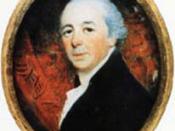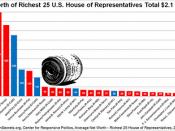There where four principles to the new idea of Colonial Republicanism.
The first principle was Rejection of the Monarch.
The people believed in a representative government; elected of the people by the people. This is called "the consent of the governed." (Something some politicians today ignore). The colonists did not believe that one person should be predestined to be their sole ruler.
The second was the principle of Liberty.
The colonists wanted to be free from the influence of others. They did not want to be controlled in their everyday life.
The third was Political Equality.
The colonists believed that all landowners should have an equal vote in electing officials. Meaning, no single qualified voter would have more say than another. (Today there is no qualifying factor to vote. Would it be reasonable to ask even one or two questions of a simple nature to judge whether or not a voter even possesses the capacity to make a decision?)
The fourth was Public Virtue.
This may be the most important principle of Republicanism. That was the belief that the concerns of society were more important than the welfare of the individual. The government must support a sense of morality and virtue for the people. (Do not confuse this with governmental support of the public; without concerns for society we would be left with strict libertarianism or anarchy. Adam Smith's theory of each individual striving for their own success will propel the success of the group was flawed. He was interpreted and revised by John Nash in 1948 to allow for each individual to strive for their own good as well as the good of the group)
In my interpretation, Republicanism in colonial America meant more than eliminating a king and instituting a representative government; it set moral and social...


